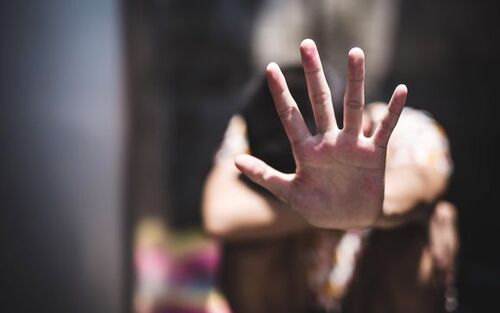-
Finland: violence.
Women and girls in Finland still face violence, poverty, harassment.
Manslaughter where the victim is a woman and the suspect is a current or ex-partner is the second-most common type of homicide.
Image: AOP.
Finland still has work to do when it comes to safeguarding the rights of women and girls, according to the National Council of Women in Finland, an umbrella organisation representing 40 gender equality NGOs.
In a report published on last Thursday (in Finnish), the council found a number of areas in which Finland needs to improve human rights for women and girls, including violence against women, poverty, racism and precarious labour contracts, among others.
The report marks the 25th anniversary of the Beijing Declaration and Platform for Action, which sought to promote women's rights and empowerment.
"The NGO report clearly shows that gender equality has not been achieved, even in Finland. On the contrary there is still more work to be done to achieve gender equality than many would believe. These problems cannot be resolved without women, but neither will they be resolved without functional and ambitious gender equality policies," organization chair Eva Biaudet said in a statement.
Nearly half of women suffer sexual, physical violence.
The report found that up to 47 percent of women and girls above the age of 15 said they had experienced physical or sexual violence. One in three said their aggressors had been a current or former partner.
Moreover, violence against women was said to be recurring, with one in five shelter residents above the age of 15 reporting experiencing violence for several years.
In Finland, the second-most common homicide overall is manslaughter in which the victim is a woman and the suspect a current or former partner.
Migrant women face racism, harassment.
Women who have settled in Finland from abroad experience many kinds of discrimination. A European Union report on minorities and discrimination found that Finland is one of the most racist countries of the European countries included in the study.
Nearly half of African background women reported experiencing discrimination during the past five years, that study found - most often at the hands of strangers. They were often subjected to name-calling or other forms of verbal abuse.
Women also experienced discrimination in dealing with the authorities. For example, immigrant-background women are often automatically advised to enter the healthcare profession without recognition of their desires or abilities.
High risk of poverty among elderly women.
Women over the age of 75 who live alone are at the greatest risk of poverty, the report found. In 2016 one in four elderly women belonged to low income groups. The risk of poverty is especially high among older women living alone, since low-wage jobs and career breaks mean they have smaller pensions. Women tend to experience career disruptions when they stay at home to care for young children.
Nearly 70 percent of over-65-year-olds living exclusively on basic benefits are women. In practice this means that they only receive a guarantee pension of 784 euros monthly, paid to persons whose pre-tax pension income is otherwise less than 777.84 euros per month.
Persons trying to make ends meet on a small pension often can't afford to seek medical help and therefore grapple with multiple health problems.
Fixed-term work and zero-hours contracts.
Women still outnumber men when it comes to part-time and fixed term work, often against their will. In 2017, one-fifth of women worked part-time, compared to one-tenth of their male peers.
People with fixed-term contracts generally earn less that full-time permanent employees. According to the report, employees in women-dominated fields usually have less information than others about their upcoming work shifts. From a gender equality perspective, fragmented work makes it more difficult to coordinate work and family life, the organization noted.
Cancer screening bypasses elderly women.
Breast cancer is the most common form of cancer afflicting women and in Finland a large number have reached the age where they are at risk of developing the disease.
Although Finland screens for breast cancer, the procedure still only targets women between the ages of 50 and 69. The report noted that women up to the age of 74 should also be eligible for mammograms.
At the same time, more than half of breast cancer cases are identified outside of the screening process and breast self-examinations have fallen off over the past 25 years.
The report found that guidance on breast self-exams provided to patients depend largely on where they live and which medical professional they visit.
EDIT: This story originally translated 'henkirikos' as 'crime'. The correct translation is actually 'homicide'. The corrected sentence now reads "In Finland, the second-most common homicide overall is manslaughter in which the victim is a woman and the suspect a current or former partner".
-
Commentaires

